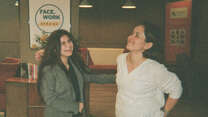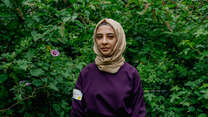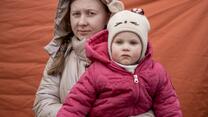As we mark a decade of conflict in Ukraine and two years since the war escalated, the devastating impact of the conflict continues. While countless people inside the country face ongoing hardship and struggle to access basic necessities, the echos of the war reach far beyond Ukraine’s borders.
With millions of families forced to leave their homes, the IRC has provided support to Ukrainians who have found safety in the UK as they adjust to life here. This has included orientation, language and employment courses.
As the war continues, we share the inspiring stories of the Ukrainian families we have assisted. We reflect on their resilience and bravery as they build new communities, enroll their children in local schools and start brand new careers.
Svitlana’s story
Svitlana, 38, lived happily with her husband and two daughters in Ukraine. While she worked as an English language tutor, her husband was an IT manager and her children attended one of the best schools in Chernihiv. But when the war escalated in 2022, Svitlana was left with no choice but to pack up her things and evacuate to Western Ukraine with her daughters.
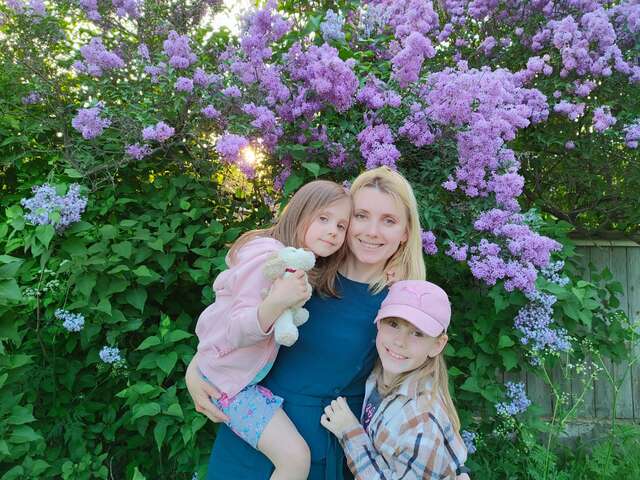
She said: "It was one of the hardest decisions in my life. We had to choose either to stay in the city which was shelled and bombed and hope that it would quickly come to an end, or to pack our essentials and risk moving.”
After living in a village in the Chernivtsi region for eight months, Svitlana and her family were forced to move again when things got worse in their home country.
Now living in Preston with her family and a sponsor, Svitlana admits things were difficult when she first moved as she struggled to navigate new systems.
"It was quite hard to get adjusted to the difference in healthcare systems,” she said, adding: “But we were also surprised by the hospitality of our sponsor and his family. I knew that British people are polite, tolerant and supportive, but I couldn’t imagine to what degree.”
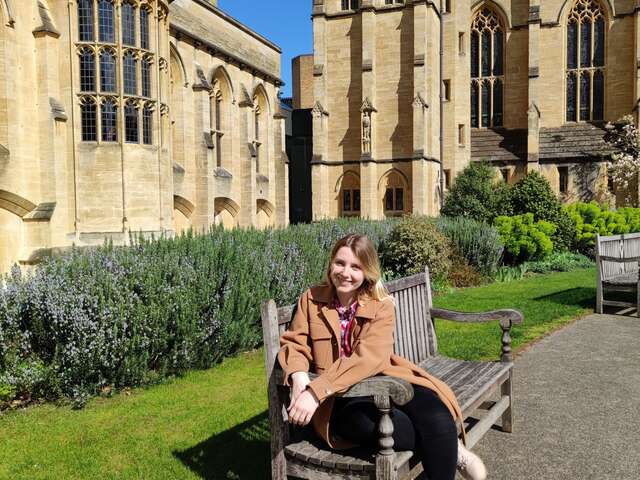
Svitlana was introduced to the IRC by a friend and signed up for the Orientation for Newcomers course, which she said allowed her to meet fellow Ukrainians and understand British systems better.
While it has been difficult for Svitlana to be away from all her friends and family, she has built a life for herself in the UK. As well as completing a CELTA course, she has also been working as an ESOL (English for speakers of other languages) lecturer at Preston College.
Here, Svitlana teaches teenagers and adults who are refugees and asylum seekers.
She said: “I would say that staying active has helped me a lot. I have tried to apply to many positions. I have also tried volunteering at schools and changed jobs several times but now I am where I want to be.”
Read more: The Ukrainian women challenging mental health stigma: “We need to rebuild a nation”
Iryna’s story
Iryna, 33, loved her life in Kyiv and was building her career in accountancy for an IT company. But when the war escalated in February 2022, Iryna’s mental health started to decline. One year later she made the difficult decision to leave her home behind and move to the UK.
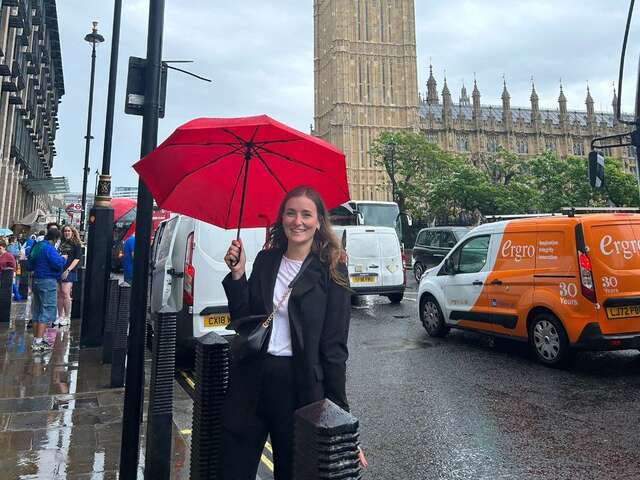
“My parents lost their jobs, they are pensioners and couldn’t provide for themselves so I was trying to help,” she said. “But after almost a year my mental health was very bad after seeing the terrors Ukrainians suffer every day. I then started experiencing panic attacks so my family strongly recommended that I move."
Having connected with a host family in Petersfield, Hampshire, Iryna said she found the decision to leave Ukraine hard, but she knew her parents wouldn’t be able to move with her.
Arriving in the UK, Iryna needed time to recover, but with strong support from her host family, the community, and a psychotherapist, she began to feel better.
I was very lucky with a nice host family and a lovely place I ended up in. They have a big lovely family, who visit all the time. It’s similar to what I had in Ukraine. I love the family feeling I get here.
While rebuilding her life in the UK, Iryna – who took part in the IRC’s Orientation and Leadership courses – has been working as an interpreter for the council and various organisations.
She volunteers as part of the female Ukrainian choir and works part-time for the Royal Theatre as a duty manager. Iryna is hoping to become an English teacher as she signed up for a CELTA course for teachers of English as a foreign language at Portsmouth University.
She said: “I have been able to help my community. When you can help people, you feel better in general.”
Halyna’s story
Halyna, 45, worked as an event manager and journalist in Lviv and loved her life with her two children. But in March 2022 Halyna was forced to leave her husband in Ukraine and take her children to join her brother who lives in London.
"I wasn't ready to live and work in the UK because my English wasn’t good," she explained. The unfamiliar language and culture shocked Halyna, who said: "I went from one reality to another reality which was totally different from my home."
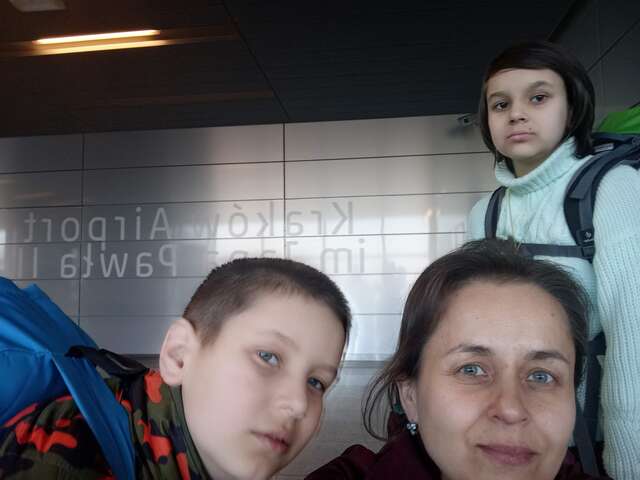
While Halyna thought she would only be in the UK for a few weeks, the worsening situation in her home meant she had to make the difficult decision to stay in London permanently.
I decided to stay here because of my children. If I was alone, I would be back in Ukraine, maybe close to the frontline, maybe as a journalist. I don't know, but I chose a safe place for my children.
After getting a job in a hotel, Halyna felt frustrated at being unable to use the skills she had learned in Ukraine. "It was about survival, not personal development. I didn’t feel like I was helping other people so I didn’t feel like I was worth anything."
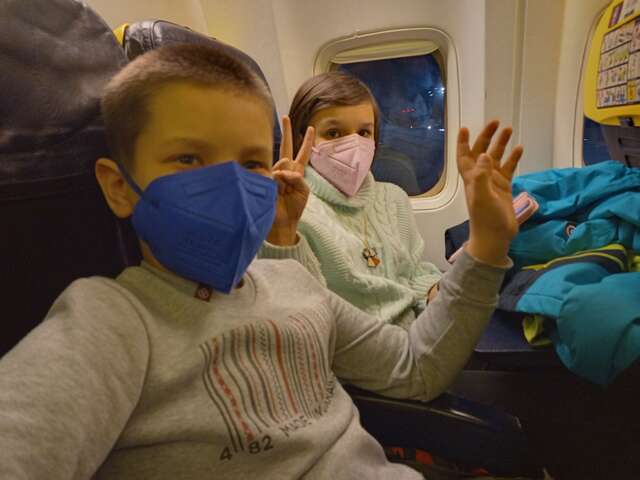
But she has since become part of a local project in Lewisham which provides Ukrainians with employability training. Here, she helps identify barriers and solutions for other refugees who are struggling to find work.
During the IRC’s leadership programme, Halyna met Masoma, a refugee from Afghanistan, who is keen to help with the employability project. After realising their joint struggles, Halyna and Masoma recently worked on a proposal with the social enterprise Facework Group CIC to extend training to Lewisham’s Afghan community which has now been accepted by the council.
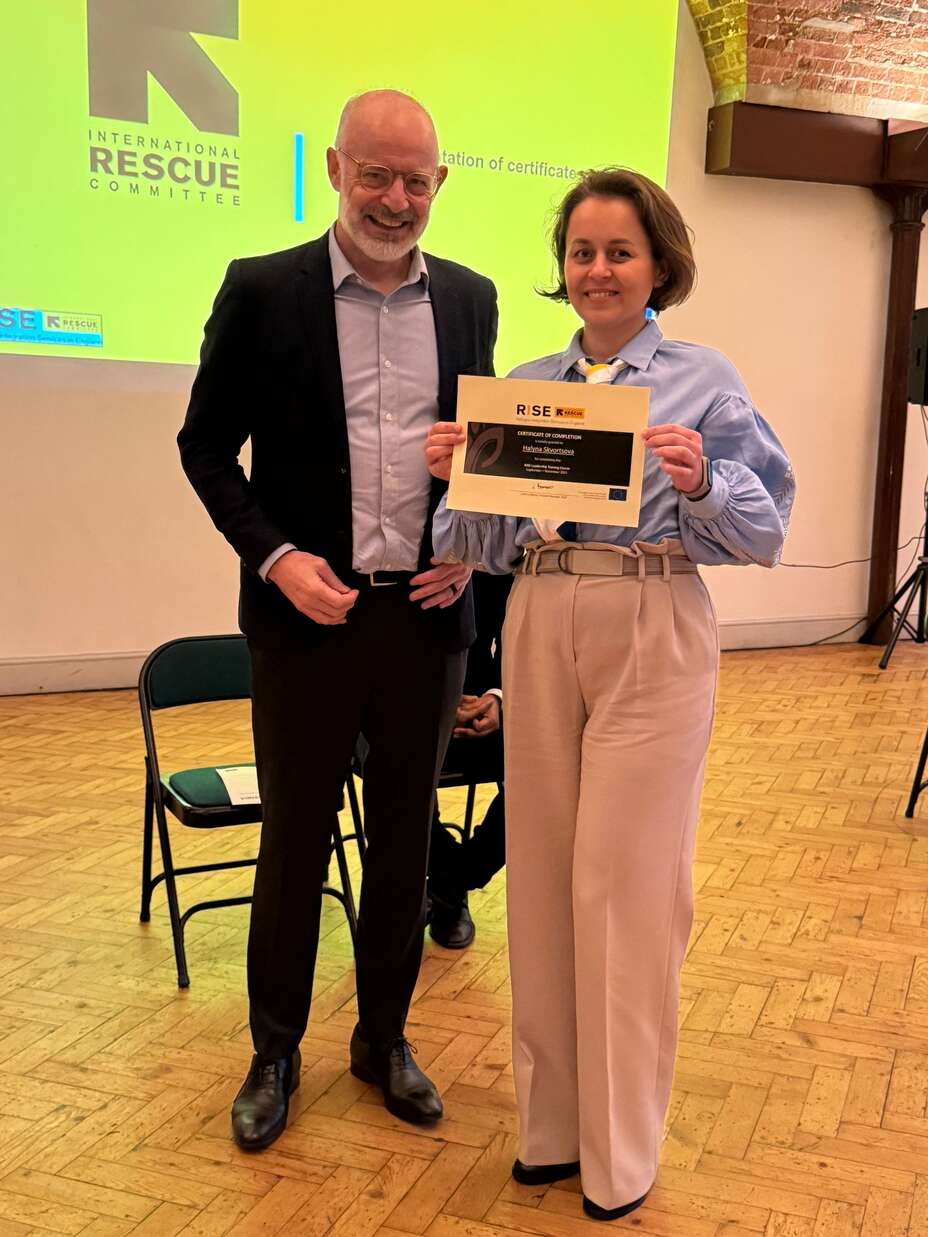
On her friendship with Masoma, Halyna added: “We have experienced the same challenges which have made us close as friends.”
